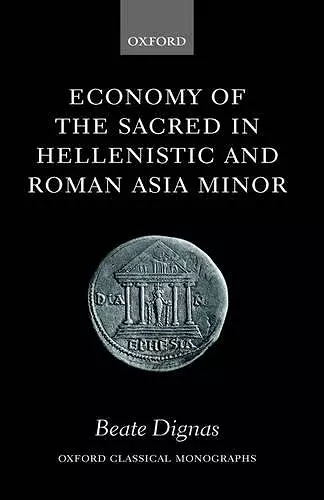Economy of the Sacred in Hellenistic and Roman Asia Minor
Format:Hardback
Publisher:Oxford University Press
Published:12th Dec '02
Currently unavailable, and unfortunately no date known when it will be back

This original study challenges the idea that sanctuaries in Hellenistic and Roman Asia Minor were fully institutionalized within the poleis that hosted them. Examining the forms of interaction between rulers, cities, and sanctuaries, the book proposes a triangular relationship in which the rulers often acted as mediators between differing interests of city and cult. A close analysis of the epigraphical evidence illustrates that neither the Hellenistic kings nor the representatives of Roman rule appropriated the property of the gods but actively supported the functioning of the sanctuaries and their revenues. The powerful role of the sanctuaries was to a large extent based on economic features, which the sanctuaries possessed precisely because of their religious character. Nevertheless, a study of the finances of the cults reveals frequent problems concerning the upkeep of cults and a particular need to guard the privileges and property of the gods. Their situation oscillated between glut and dearth. When the harmonious identity between city and cult was disturbed, those closely attached to the cult acted on behalf of their domain.
a very valuble attempt to understand the system - or systems - of temple finance, taking a fresh look at the many difficult topics connected with this subject. * Thomas Corsten, Classical Studies *
... accomplished ... written in a confident style ... accompanied by two helpful indices ... [Dignas] has put important new questions and instructions on the agenda which deserve to be fully absorbed. * Scripta Classica Israelica *
ISBN: 9780199254088
Dimensions: 224mm x 144mm x 26mm
Weight: 611g
378 pages